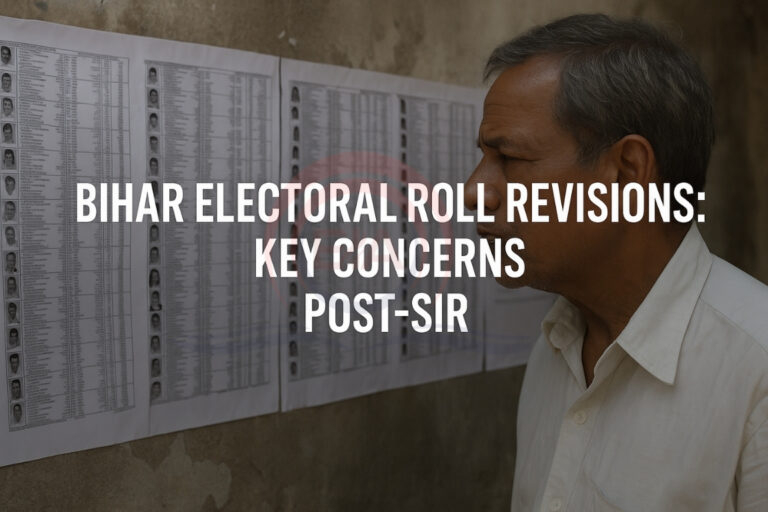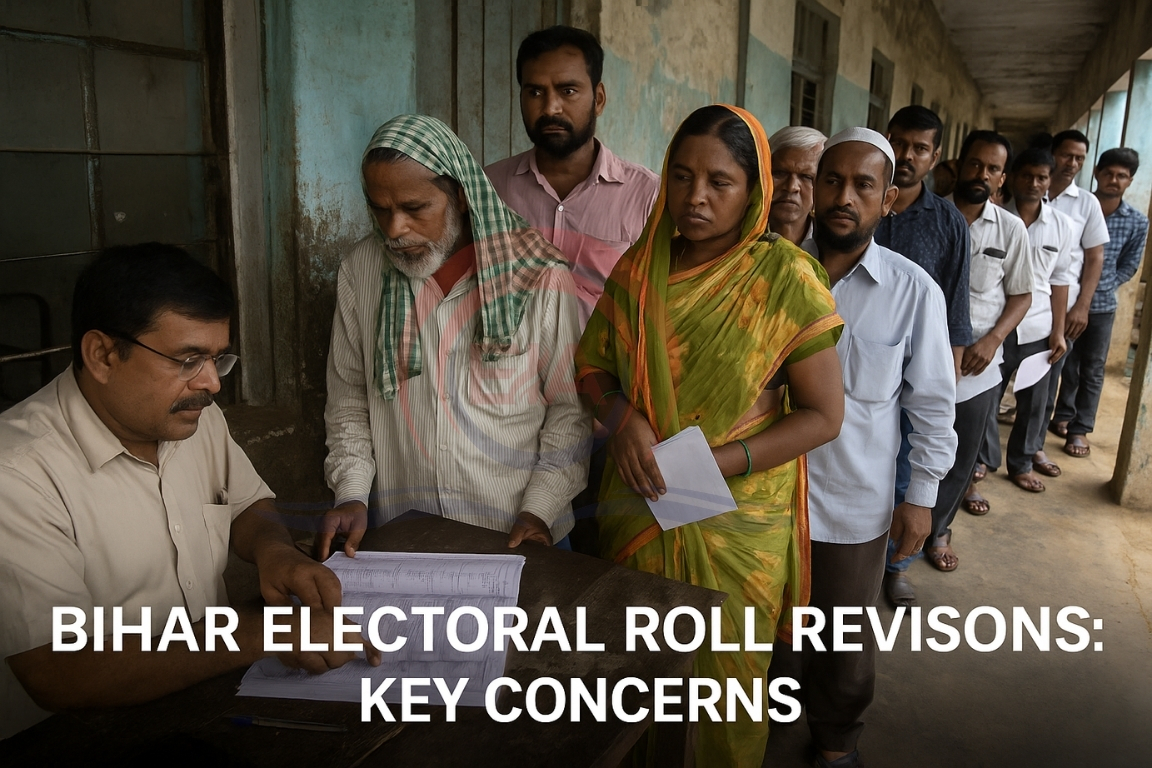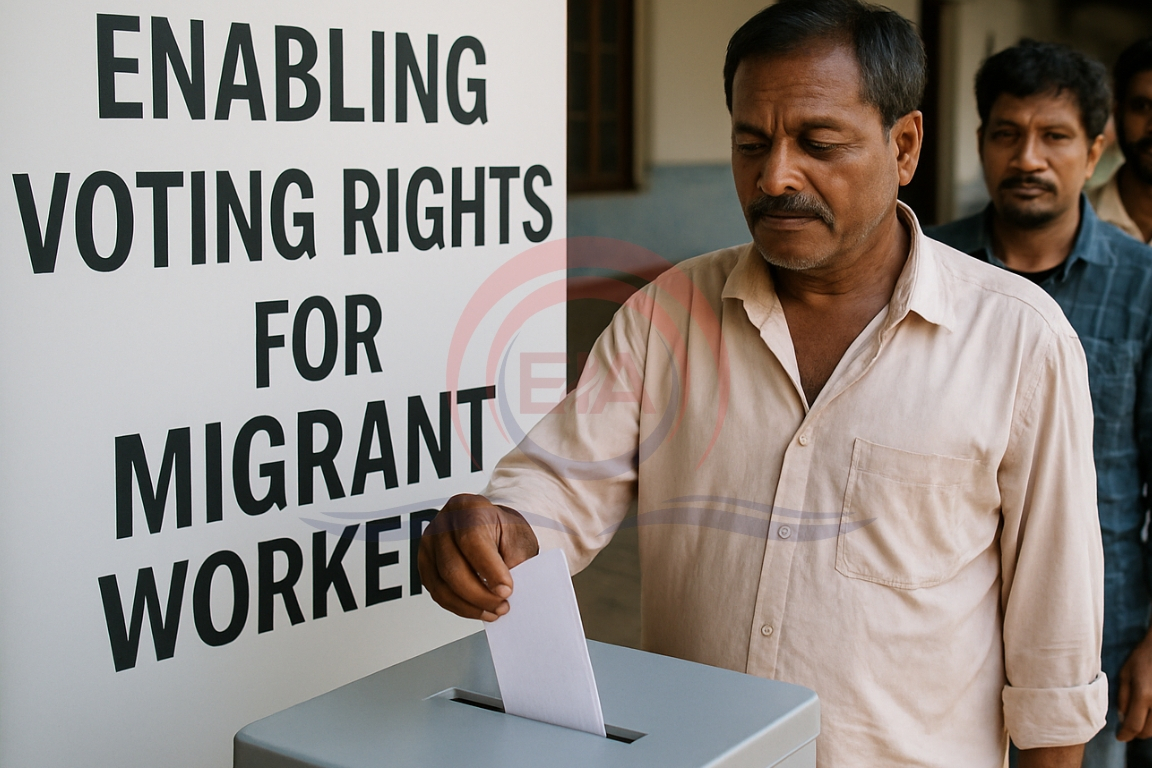The Election Commission of India (ECI) released the draft electoral rolls for Bihar on August 1 after a Special Intensive Revision (SIR), showing a significant drop of 56 lakh voters. This has raised concerns, especially in Muslim-majority and high out-migration districts.
Special Intensive Revision (SIR) in Bihar
- The SIR exercise aimed to clean electoral rolls by removing:
- Deceased individuals.
- Duplicate registrations.
- Voters who migrated out of Bihar.
- Untraceable entries.
- The new draft roll has 7.24 crore voters, down from over 7.8 crore in January 2024 — a net reduction of more than 56 lakh electors.
Higher Deletions in Muslim-Dominated Districts
- Data shows a moderate positive correlation (r ≈ 0.43) between: Muslim population share (as per 2011 Census), and Voter deletions in August rolls.
- Suggests that districts with more Muslims witnessed more voter removals.
- However, more granular data is needed to confirm if Muslims were disproportionately affected.

Lower Deletions in SC-Dominated Districts
- A negative correlation (r ≈ -0.46) found between: SC population share and Voter deletions.
- Indicates fewer deletions in SC-majority districts, but again, detailed community-wise data is needed.
Using Female Voter Turnout as Migration Proxy
- In 2024 Lok Sabha polls, Bihar showed: Higher female voter turnout than male, despite more male registrations.
- This suggests that many men may have migrated, leaving fewer male voters present on polling day.
Out-Migration and Voter Deletions Linked
- A correlation (r ≈ 0.40) was observed between: Districts with higher out-migration, and Higher voter deletions in the SIR.
- Indicates that ECI’s rationale of migration-based deletions is partially supported by data.
Concerns and Implications
- While the voter list clean-up is necessary, patterns hint at potential community-level impacts.
- Risk of unintentional disenfranchisement, especially in minority and migrant-heavy districts.
- Further analysis is required to ensure fairness, accuracy, and inclusivity in the electoral process.
Conclusion:
The SIR process in Bihar has raised red flags over voter deletion patterns. A deeper, community-wise and gender-sensitive examination is essential to uphold the democratic principle of universal suffrage.





